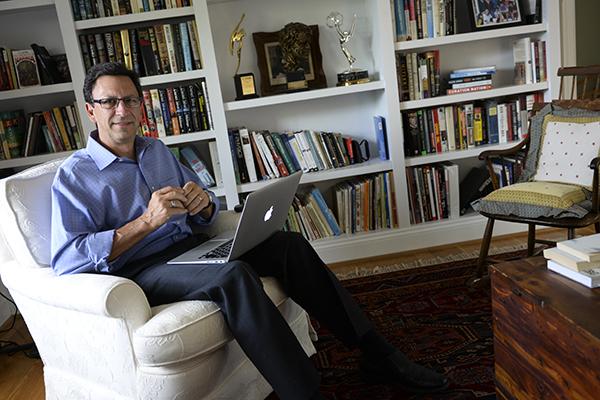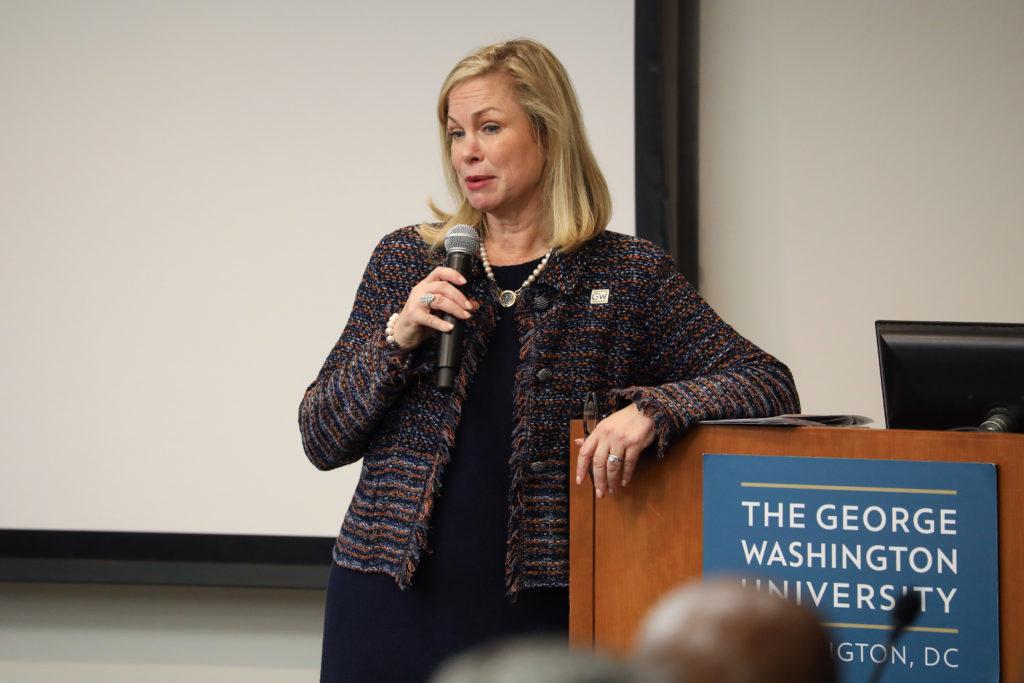A resident data journalist is joining the faculty of the School of Media and Public Affairs, the school’s director announced last week.
Dante Chinni, a data journalist with the Wall Street Journal and NBC, is joining SMPA to develop the school’s approach to data analytics and its new digital-focused curriculum. Chinni will participate in class lectures and recruit graduate students to help build a database of economies around the U.S. this semester, he said.
Chinni wants to teach students how to translate numbers for journalism, he said.
“Too much of what data journalism has become, in people’s minds, is that you take a bunch of polls and then you try to predict stuff,” Chinni said. “I’m here to work with students to better understand what the data means, not just what it predicts.”
SMPA launched a new curriculum last fall focused on data-driven storytelling in response to a rising demand for employees with data skills at news organizations and communication firms. The school also hired two new assistant professors this fall, one who will teach a course on data and computer-assisted reporting.
Chinni said he will recruit graduate students to work with him on an NBC-funded project to create a database that analyzes economies in different communities throughout the U.S. He will measure communities’ changes in socioeconomic status, education rates and diversification levels, he said.
“Based on my ideas on geography, I want to work with some students to build an almanac of American communities,” Chinni said. “This should be a major story right now, and it’s not really receiving coverage.”
Chinni worked on the project at American University, where he was also a data journalist in residence, but said he was unable to complete the project at American.
Chinni will not formally teach this semester but will attend discussions with students over lunch, informal workshops and public events to get to know SMPA and other GW students and faculty. He said covering the U.S. presidential election will limit his role in SMPA this semester but that the election provides information for long-term data projects.
“The long-term story of this election cycle is how the parties are moving and what’s happening to the internals of the parties,” Chinni said. “And as the parties change, what does this do to our politics, what it means for our policy, and that’s why this is an important time for data journalism.”
Chinni hopes to take an active teaching role following the election and may teach a class in the spring about data journalism and the presidential election, he added.
Frank Sesno, the director of SMPA, said he hired Chinni to share his real-time experiences in data journalism to help update SMPA’s current approach to data reporting.
“Dante’s work brings together his analytics and his study of the demographics of the country at a very tumultuous time and joins it together with real storytelling,” Sesno said. “That combination is just invaluable.”
Sesno added that Chinni’s role fits well with the school’s emphasis on digital storytelling, and Chinni will give students the direct opportunity to experience how data and journalism can work together.
“Basically what he does is he peels back the onion and layers of different demographics within communities across the country,” Sesno said. “Students are seeing how the work they are doing in class and the work they want to do as professionals actually is done by somebody who is doing it at the very highest levels.”
Avery Anapol contributed reporting.







